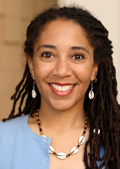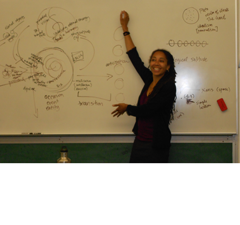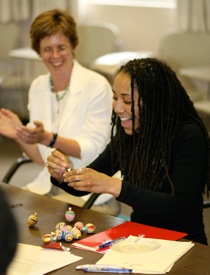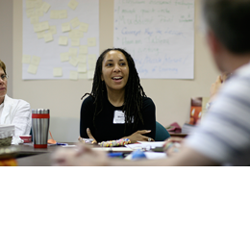
Students Teaching each other through Partnership
Pedagogical Confession: I learn from lectures. I’m one of those people for whom the traditional academy was made. I listen to lectures on audiofiles (and I have since I was a teenager). My larger classes in undergraduate and graduate school were large lectures with separate sections led by a teaching assistant. I can sit poised with pen and notebook (or laptop nowadays), take notes, and grow from the content presented. I still remember the lectures that changed my view of an issue or topic.
assistant. I can sit poised with pen and notebook (or laptop nowadays), take notes, and grow from the content presented. I still remember the lectures that changed my view of an issue or topic.
But I’ve read liberation pedagogy by bell hooks and Paulo Freire. I know the shortcomings of the “banking model of education,” and that learning is far greater than pouring “wisdom” from my academic ewer into hopefully-awaiting minds. Nevertheless, I confess that my default practice is to teach in the way I learn best. So I am intentional to lecture less.
 One way I lecture less is by letting the students teach each other. Years ago, I began giving students theological dialogue partners. I intended it as a kind of “study buddy” for graduate students. Before turning in a written assignment, students have to communicate with their “theological dialogue partner” about the work that they are doing. Along with the assignment, they turn in a form that says, “My dialogue partner is ___ and I learned ____.”
One way I lecture less is by letting the students teach each other. Years ago, I began giving students theological dialogue partners. I intended it as a kind of “study buddy” for graduate students. Before turning in a written assignment, students have to communicate with their “theological dialogue partner” about the work that they are doing. Along with the assignment, they turn in a form that says, “My dialogue partner is ___ and I learned ____.”
Some dialogue partners have coffee; others email; some have phone conversations. I intentionally partner students who have different theological perspectives; other times I partner students by degree program. I hoped that students would get in the practice of talking through ideas before writing about them. I hoped they would learn that theology is best bred in conversation.
To my delight, students learned from each other and brought their learnings into the classroom. Theological dialogue partners began sitting together, and sharing parts of their conversations from outside of class. They talked about how  their partners viewed a topic – even when quite different from their own. They laughed about an insight they got from talking to their dialogue partner. They checked in with the partner to see if s/he was being represented accurately. My students were able to hear – with authority – a view from a colleague just as clearly (if not more clearly) than the material I presented. It was clear that they were becoming each other’s teachers.
their partners viewed a topic – even when quite different from their own. They laughed about an insight they got from talking to their dialogue partner. They checked in with the partner to see if s/he was being represented accurately. My students were able to hear – with authority – a view from a colleague just as clearly (if not more clearly) than the material I presented. It was clear that they were becoming each other’s teachers.
Okay, I still lecture – especially with large intro classes and when trying to save the students an onerous reading load. But I better appreciate the learning that occurs when I lecture less and lead students into teaching one another.
For more on theological dialogue partners, check out Monica's 2009 article from Teaching, Theology, and Religion. http://onlinelibrary.wiley.com/doi/10.1111/j.1467-9647.2009.00550.x/full